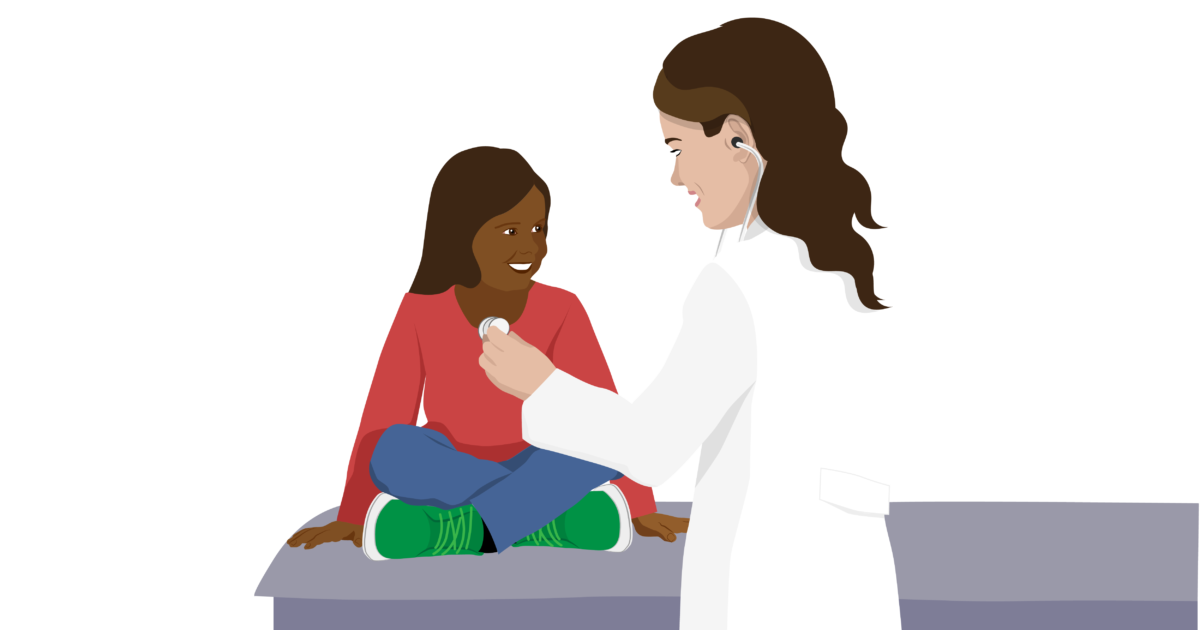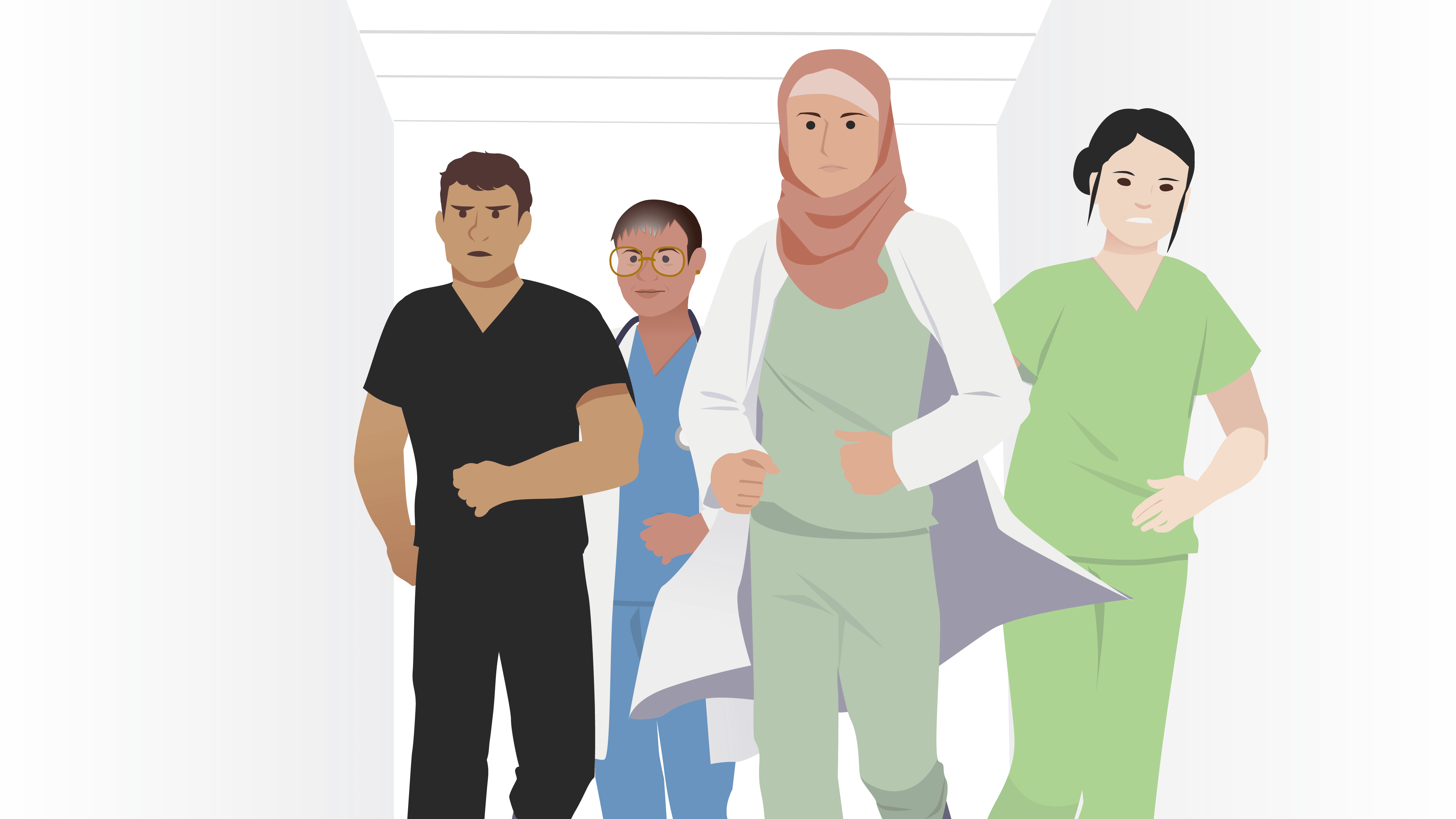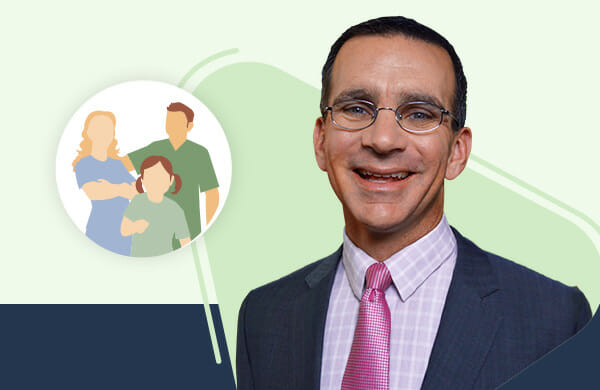This article will discuss the common characteristics surrounding a select few specialties. Why bother discussing it? Because stereotypes don’t come from nowhere. They’re from prejudices we have based on the little understanding we have of them. So I’m here to debunk (or maybe substantiate) some well-known stereotypes, and by doing so, shed some much-needed light on the reality they experience.
Where did the stereotypes mentioned in this article come from?
In a study published in the Cambridge Medicine Journal, medical students in the University of Cambridge were asked to write down the first adjective in their head regarding different specialties. Under surgeons, they wrote the words, “Arrogant,” “Skillful,” and “Precise.” while they described radiologists as “Boring,” “Reclusive,” and “Visual.”
In another study done in 2017, published under BMC Medical Education, a wide internet search was done to analyze jokes made about various specializations. Typical jokes about orthopedic specialists alluded to them knowing “little beyond their field of expertise.” Jokes about anesthesiologists were about how they were often “idle” or “always on break.”
There are many other studies that tackle medical specialty stereotypes that generally paint the same picture as the ones mentioned above. However, let’s remember that that is all they are: stereotypes. It’s a generalization about a group of people, whether or not they’re actually true.
Are they unfair? Yes. Can these stereotypes be harmful? Absolutely! Does that stop people from making jokes about it? Of course not.
The medical field is a stressful environment and people need an outlet to cope. Because of that, gallows humor and derogatory humor (i.e., stereotypes) have become our bread and butter.
I would like to note that jokes at anyone’s expense, whether it’s a patient, a fellow staff member, or a doctor colleague, are tasteless. Being under stress or burnt out doesn’t make any form of discrimination okay. Moreover, students should avoid making career decisions based on any stereotypes. Maybe in reading this article, we’ll understand that while stereotypes may ring with some truth, we can look past them to see each individual doctor for the person they truly are.
“Anesthesiologists are always idle”
Anesthesiologists are often seen in the operating room where they sit behind a large drape, beside a large beeping machine. Contrary to the jokes, the bulk of an anesthesiologist’s job is not solving sudoku puzzles until the surgery ends. They’re there to relieve pain and take care of patients undergoing surgery, something that is a more delicate process than people realize.
Without anesthesiologists, most surgeries are impossible to do and when they are possible, the outcomes are not great. Are they truly idle? No, they’re monitoring. The anesthetic machine shows them the patient’s vital signs and they observe the patient to make sure everything’s going smoothly. Should an emergency happen, they’re prepared to respond quickly.
I’ve never seen anyone move faster than an anesthesiologist when the patient is desaturating in the operating room.
So no, they’re not idle. But if they do look idle to you, maybe that’s a good thing. Maybe it means that everything is going smoothly, thanks to them.
“Surgeons are arrogant and bossy”
Many of us have heard and maybe even had the misfortune of experiencing an angry surgeon. Some have outbursts, throw instruments, or yell at whoever made them mad (or whoever is in the vicinity). Is this true? I will not deny that this happens, but let’s look at the bigger picture: Surgeons need to be confident. The patient, most of the time, will be asleep, and they will not put their trust in a timid, unsure doctor. Surgeons need to be in charge because the hard decisions will ultimately fall to them, which is especially hard when things don’t go the way they should. It’s not as simple as being bossy or arrogant, for the sake of it.
Of course, that’s not an excuse for any unprofessional behavior. That’s why nowadays the surgical scene continues to evolve, and hopefully for the better. The modern surgeon recognizes that while he is the captain of the ship, an effective surgery comes from an effective team. They’re open to second opinions, new ideas, and new techniques. They carefully reflect on their successes and mistakes (and those of others). Many surgeons already act this way, and many others have changed the way they approach operations to fit his mindset, working away from the stereotype.
“Pediatricians are fun and childish”
Many know the picture of a pediatrician: colorful accessories to distract and disarm, a gentle tone of voice to pacify, and eyes that sparkle with joy at a child’s laugh. In reality, pediatrics is not all sunshine and rainbows. Pediatricians have to be light-hearted to keep their patients not only engaged, but calm. Anyone who’s dealt with kids before knows that once they cry or act out, it’s hard to proceed with anything– and there’s no stopping the waterworks without a lot of hard work.

What many people don’t see is how grounded pediatricians actually are, especially when dealing with parents. They can balance being bright for the kids in one moment and being serious the next when speaking to parents. This can be difficult, especially in a life-or-death situation. So are they fun? Yes, because they have to be. Are they childish? Hardly. If anything, it’s these characteristics that make pediatrics only for those mature enough to handle some of the most heartbreaking moments you’ll experience in medicine.
Take the Course: Pediatrics
Start the online pediatrics course with Dr. Brian Alverson from Brown University
“Orthopedics is for ‘bros’”
Many of us know orthopedic doctors as the “Ortho Bros.” It’s a common belief that orthopedic surgeons tend to be the jock-type, bulky men who are “pretty chill” relative to other specialties. While not all orthopedic specialists are muscular, or even men for that matter, studies show that they do exercise more than other physicians in general. In 2022, more than 90% of the members of American Academy of Orthopaedic Surgeons (AAOS) were men.
For anyone who has assisted in ortho-related surgeries, they know a certain amount of strength is necessary to hold a leg in a particular position or to cut through bone with a saw. You do need to build some muscle in this field. It also makes sense that a lot of jock-types go into orthopedics because of its close tie with sports medicine because injuries happen all the time in sports. So, in a way, this stereotype does hold some truth. However, that doesn’t mean the specialization should be limited to sporty men. A diverse field has many advantages, like better patient communication. Because of this, there have been many initiatives to increase the diversity of the field of orthopedics. So, don’t let the stereotypes stop you from becoming the bone doctor you’re meant to be!
“Psychiatrists love corduroy suits”
Of course, this isn’t limited to corduroy. Many people associate psychiatrists with wearing business formal rather than the traditional white coat. While many laugh about wearing tweed in a hospital setting, you have to admit that psychiatry has a different approach towards patients compared to other specialties. So a change in dress code might be warranted, based on the needs of their patients.
Take the Course: Psychiatry
Start the online psychiatry course taught by Dr. Helen Farrell from Harvard Medical School
Studies show that what you wear is important to patients. So should psychiatrists wear business casual over white coats? Actually, the answer is both yes and no. In a study done in 2020, it was found that patients generally see doctors in white coats as more competent, while those in casual clothing as friendlier. It really depends on the type of patients you have. In a more recent study in 2023, younger patients preferred doctors in business formal while older patients preferred white coats. Basically, attire should depend on your patient’s culture and demographic preferences. But the bottom line in this debate seems to be that, as long as you keep a neat and clean appearance, your clinical skills as a professional will matter more to your patients.
“Pathologists don’t like socializing”
When students were asked how they would describe pathologists, they included the words, “nerdy,” “anti-social,” and “boring.” This stereotype comes from the joke that a pathologist’s best and only friend is their microscope, but is there more to this stereotype? After all, in a study done by the Royal College of Pathologists, almost all respondents believed that pathologists didn’t like people and it was assumed that’s why they went into pathology.
While there are people who go into pathology because they prefer working in a lab rather than working with people, there are pathologists who do enjoy interacting with other people. In reality, a lot of people enter pathology because they’re interested in the academic nature, especially in exploring pathogenesis in various diseases. Contrary to popular belief, pathologists do work with people. They interact with other members of the medical team, and many even go into academics to teach students. If anything, it’s vital that you be good with working with other people in pathology.
Take the Course: Pathology
Start the online pathology course taught by Dr. Richard Mitchell from Harvard Medical School
“Emergency medicine (EM) doctors are always stressed”
If you’ve watched medical dramas, you’ve seen loads of scenes involving the emergency room. The pressure and tension make for all kinds of drama! That’s enough to stress out doctors, staff, and patients alike. The only difference is that, according to stereotype, EM doctors love the thrill and excitement.

So, are EM doctors still stressed, even if they kind of like it? Yes. But is that all there is? No, and let me explain.
In EM, your shift schedules can fluctuate, yet it is easier to make vacation time. You’ll often meet patients having the worst day of their lives, and that makes people antsy. Apart from that, they have to make big decisions in a fast-paced environment. Even if you do make the right decisions, you still can’t save every patient who walks through the doors. All these things together are the definition of stress! Despite all of this, most EM physicians are satisfied with their jobs, although much of it is owed to the organizational and operational system of the emergency room they work in. So are all EM doctors stressed? Not all of them. Unfortunately, this stereotype does hold true for ER departments with poor operational management.
Take the Course: Emergency Medicine
Start the online emergency medicine course with Dr. Julianna Jung from Johns Hopkins University
“Family medicine doctors are the friendliest”
Family medicine doctors are the center of primary care. They treat most common ailments that span from newborns to the elderly. That automatically makes them seem like the most approachable specialty because they’re literally the first ones you visit (if it’s not an emergency). Many of them also have normal work hours, so the work-life balance for these specialists makes them happier and therefore friendlier.
So, this stereotype is mostly true. There aren’t a lot of studies about how friendly they are. Based on personal experience, I have never met a mean family medicine doctor yet. Their patient rapport is usually topnotch! Contrary to the stereotype, people also experience primary care doctors who fail to properly hear them out, causing misdiagnosis. This happens when patients seek what physicians think is non indicated care and sometimes they chalk it up to “somatization.” Even if that were the case, it’s important for doctors to help patients understand how and why they’ve come to a particular conclusion.
For years, primary care’s job isn’t just to treat patients when they’re sick– our job doesn’t end there. We must validate and reassure them when they’re well. It’s about time we see patients as partners in their medical care rather than people we direct for the sake of getting better.
Take the Course: Family Medicine
Improve patient outcomes by developing a holistic approach to care.









